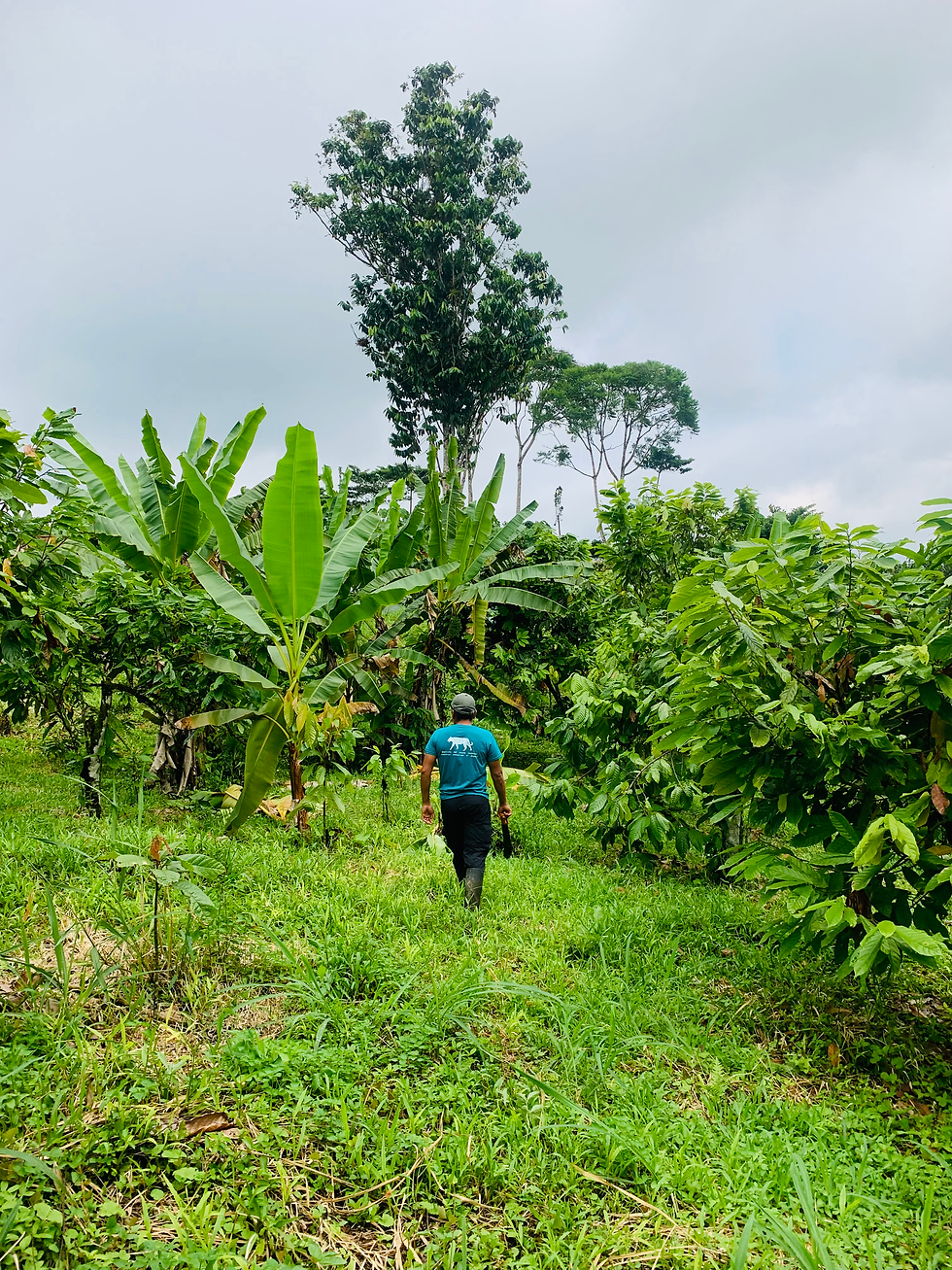The Real Work of Climate Action Happens in Communities
- Nov 19, 2025
- 3 min read

Where Sustainability Really Begins
As the world talks about sustainability, we’re looking to the people quietly living it every day. In Ecuador, our cacao farmers, Washu, the conservation NGO working alongside them, and El Salinerito, our manufacturing partners, have taught us that the most powerful forms of climate action doesn’t come from boardrooms.The real work of protecting forests and building fairer supply chains happens in communities.
Washu: Conservation Led by the People Who Live in the Forest

Washu isn’t a trading partner or a buyer. It’s a conservation NGO focused on protecting biodiversity through community-led action, supporting farmers who grow ancient varieties of cacao within biodiverse forests.
Their mission is straightforward: to conserve forests by helping local families build livelihoods that depend on keeping them alive. Farmers agree not to clear any forest to plant new cacao. Washu, in turn, supports them with training, reforestation initiatives, and access to programmes that make conservation economically viable.
It’s a model built on a simple truth: the people best placed to protect the forest are those who call it home.
How Direct Trade Strengthens Conservation

Our connection with Washu began through their conservation work. It’s how we met the farmers who grow the cacao for our chocolate. These families were already part of Washu’s rewilding efforts, cultivating cacao within thriving ecosystems.
Our role is different from Washu’s but complementary.
We buy directly from the farmers, paying a fair price for their harvest and ensuring that the value of their work stays in their hands. Washu continues to provide ecological guidance and conservation support, helping farmers strengthen soil health, plant native species, and monitor wildlife within their farms.
Together, this creates a shared system where trade and conservation support each other. The farmers earn a stable income, the forest remains intact, and consumers enjoy chocolate that represents something far more meaningful than a certification stamp.
El Salinerito: Building a Fairer Rural Economy

In the mountain town of Salinas de Guaranda, in Ecuador’s Andes, community and cooperation have become the foundation for economic change.
In the 1970s, a young Italian priest, Padre Antonio Polo, arrived and found a village struggling with isolation and poverty.

Rather than introducing charity, he encouraged local people to organise themselves and take ownership of their work. His vision was to help people help each other.
Families began forming small cooperatives, turning milk into cheese, wool into textiles, honey into sweets, and cacao into chocolate. What started as a few workshops slowly grew into a network of locally owned enterprises. Their guiding principle is economía solidaria, or solidarity economy, a model built on collective wellbeing rather than profit alone.Each business is owned by its members.
Today, El Salinerito connects hundreds of families across different trades, farmers, beekeepers, cheesemakers, chocolate makers, all working under a shared purpose. Decisions are made collectively, revenues are reinvested locally, and the community has built a resilient economy that allows people to remain in Salinas rather than seek work elsewhere.

For Rio Nuevo, partnering with El Salinerito means supporting a model that challenges the traditional chocolate supply chain. It proves that rural communities can produce world-class chocolate at origin while maintaining control over their resources and livelihoods. El Salinerito stands as an example of what ethical production can look like when fairness and ownership are built into the system itself.
What These Communities Teach Us About Real Sustainability
El Salinerito and Washu work in different regions and in different ways. Both prove that ethical and sustainable systems already exist in mountain cooperatives and forest communities quietly redefining what fair trade and conservation can mean.
They’ve shown us that sustainability isn’t a product label. It’s a relationship between land, people, and purpose.
As global conversations focus on climate and responsibility, we look to communities like these for guidance. They remind us that ethical business isn’t a future goal; it’s something already alive, in mountain cooperatives and forest farms, led by people who’ve been protecting their world long before sustainability became a headline.



